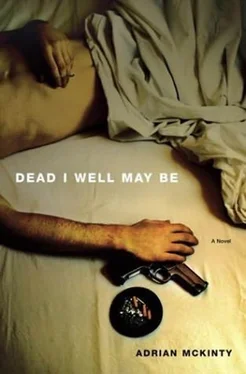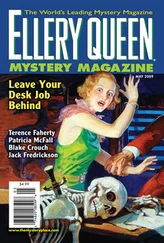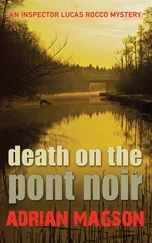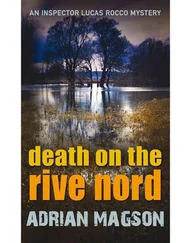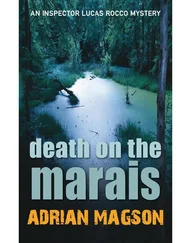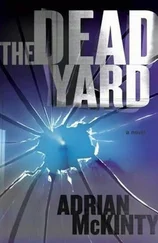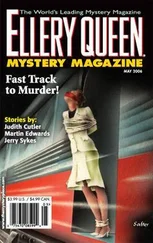But some days it was all too much and I expected horrors. I heard weird noises and lights and the trees would be alive; or I’d catch a panorama of wounded birds and jungle animals, or I’d see monsters in parade coming in from Queens and with them giants and the undead and marching bands, elephants, painted floats, and children dressed as rats and crocodiles. Me alone cognizant. Only I could bear witness. Only I was attuned. The other citizens of Harlem were blissfully ignorant of all this noisy caravan coming over the Triborough Bridge. They couldn’t see it, but then they couldn’t see anything. They were blind, perpetually blind, dazed, like survivors of a great ship intercepted unexpectedly by the shore.
One morning when the sun was out, I took the Queens-bound A train to look at the Atlantic Ocean. Rockaway was cold and the journey by crutch from the subway stop to the beach took me forever. The water was gray and incredible, tangled, bristling. Whitecaps and a howling wind. The sand freezing on my arse. There were half a dozen surfers making attempts on the slow breakers. I watched them for an hour, watched them wait in their black suits for the perfect wave and take it, cutting and gliding and falling in. Maybe I could have done that once, but not now. Fury. I walked farther up the shore where the sea was empty. I sat there and looked and begged the Atlantic to uncover itself. I waited for revelation, for meaning. But the ocean doesn’t give you anything, it doesn’t contribute, it’s a repository, a mirror of yourself, and when I looked I had no reflection at all. I decided to take the train back to Harlem, having learned nothing.
The A train is the airport train and at JFK dozens of people got on, bringing color and difference to the subway car. For them it was the end of a journey; they were tired and relieved. Their talk was excited and loud. It marked them out. And as they got more animated I got less so and dissolved into the plastic of my seat. They were too much, these Homo sapiens, these people. So close, how can they stand to be so bloody close?
The train disgorged them at midtown and by 125th they were all long gone. I was relieved; I’d felt I was having an attack.
It was my stop, so I got up and walked the platform to the exit. Through the turnstile. That walk again, up the subway steps and past the Nation of Islam men in shirts and bow ties. Light rain now, the black Israelites in front of the Record Republic. Normally, they’d yell at the white devil, but there was something about my look. They chose not to see me.
Here’s a white man who is going to kill other white men. Yes.
Up the hill. Empty plastic five-dollar crack bags littered everywhere. Men and women gathered around the fake grocery store. The 99 Cents Store. The lamp store. Children wrapped in bear jackets playing with a basketball. PS 125, armor-plated against riot and revolution.
123rd. The street still the same. Danny the Drunk, predictable and living yet. Vinny, drunk with him, both of them sitting on the stoop and leering at the black Catholic schoolgirls. I stood there and looked out at the great city and breathed the autumn air. I was starting to get back my strength for the task in hand. My body had to be strong, but my mind, at least, was already there. I know there are people who triumph over the need for vengeance, who say that loving your enemies hurts them more; that breaking the cycle of violence is the way to happiness. But this was not about being spiritually advanced. This was not about being happy. No.
I spat. The door was broken. I pushed it in and went down.
Ratko’s wife was big and white and stuffed food down our mouths to shut us up. She didn’t speak any English and was suspicious of what Ratko was telling me. Perhaps he was talking about her, or about a mistress he had in the building next door, or about plans to tip off the INS about her status. One way to get rid of her, send her back to war-torn Yugoslavia.
She fed us sausage so undercooked and bloody that I was sure it was a chastisement. Ratko ate it heartily, though, so it might just have been some Serbian thing. More familiar were overboiled potatoes and slow-baked kidney pies. For pudding she constructed on different days bread puddings and sponges and slab-thick chocolate cake that weakened you and made you drunk before you’d finished it. Ratko fed me vodka and all the time he hinted that tonight would have to be my last and that really, all things considered, I couldn’t stay here. I slept in the box room, for the spare room had become the dog’s and the dog bullied the family and began howling when I first broached the possibility of sharing space with it. Generally, I have a good relationship with dogs, but your mind needs to be clear and relaxed for it to work, so I let it have the room. The box room was tiny and airless and I slept so well there it was like I was some advanced Zen master in his monastery cell.
When we first talked, Ratko had some good news, some bad news, and some very interesting information. The information was that Sunshine had come by a week after we’d left for Mexico and paid Ratko off and told him that Darkey wouldn’t need the flat anymore. Ratko liked me and he was a close old file and so casually he asked Sunshine where I was and Sunshine said that I’d gone back to Ireland, for good. All this only a week after we’d left. One week. The bad news was that Sunshine came with a curly-haired blond guy who departed with my bloody TV and radio and a rucksack full of miscellaneous items. Ratko went in later and sold the rest of my gear for twenty bucks to the tenant across the hall. The good news was that he had saved from the garbage my driving license, social security card, and ATM card in the hope that I might write and claim them one day. The ATM card got me access to about a hundred dollars and I give it to Ratko for board…
We’re at breakfast.
Toast, sausage, egg, fried black bread, vodka, and coffee.
Ratko’s wife asks Ratko to ask me what happened to my foot, what happened to me, but I give him a look. We talk sports from the paper and about the Kosovars and Tito and why Zagreb is beautiful but Belgrade isn’t (the answer, apparently, is because of collaboration).
Yeah, and we talk football. Northern Ireland has no chance of qualifying for the World Cup, but I live a little on the glory days of ’82 and ’86. What will happen to the Yugoslavian team is anyone’s guess.
Once mighty Balkan superpower will split into six, maybe eight teams, Ratko says, sadly. We chew our toast and drink our coffee.
And my friend, Michael, how do you feel? he asks me after a dish of what I take to be a type of black pudding.
In general?
In general.
Well, sometimes I hallucinate about the armies of the dead marching over the Triborough Bridge, but most of the time I’m ok.
He winks at me.
Your sense of humor, he says, and he’s inwardly glad his wife has no English.
I finish breakfast, get up, get my stick, go out for a walk, come back…
At dinner that night the wife was mumbling loud over the cabbage. It was getting clear that it was time to go. He broached the subject delicately over vodka, and it was like water off my back.
Really, Michael, I am not kidding. It is perhaps soon that you look for somewhere else to stay. I love you, you stay forever, but Irina, you know.
I know, I said, cheerfully, and continued eating.
For the next few days this theme of my departure was Ratko’s relentless leitmotif. But I wasn’t taking hints, there was nowhere for me to go. Ratko was being got at from three sides: Slavic hospitality, duty to a friend, and a suspicious caricature of a wife who wanted me out before whatever doom pursued me found me here. And there was doom, the dog had stopped eating and wouldn’t let anyone near it, an unheard-of thing until I showed up.
Читать дальше
